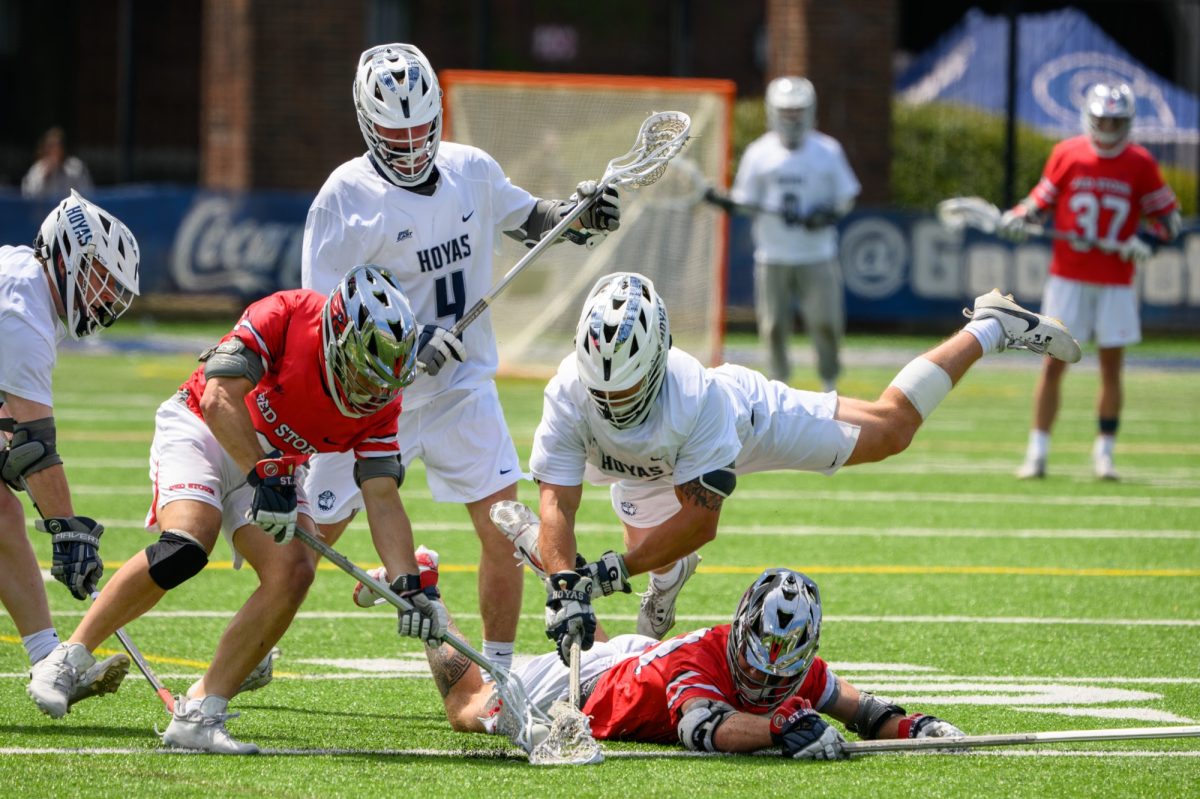This article includes descriptions of domestic violence and assault. Please refer to the end of the article for on- and off-campus resources.
Following the Kansas City Chiefs’ 35-24 defeat of the Tennessee Titans in the AFC Championship Game on Sunday, Jan. 19, NFL Network reporter James Palmer tweeted a video of the Chiefs’ defensive end Frank Clark praising his team’s defensive effort and expressing, with a number of expletives, his confidence in his team’s ability to take home the Super Bowl title. While some fans were quick to praise Clark’s passion for the game, many members of the media and the greater NFL fandom have failed to recognize Clark’s history of domestic abuse.
Frankly, the NFL has a domestic violence problem. On Sept. 8, 2014, TMZ released a video showing Baltimore Ravens running back Ray Rice assaulting his then-fiancée in an elevator. Rice was subsequently released by the Ravens and has not played in an NFL game since the incident. As a result of the Rice incident, the NFL has adopted stricter domestic violence policies, with many teams taking extra care to steer clear of players with histories of domestic violence.
The Kansas City Chiefs, however, are not one of them. According to USA Today, Chiefs players have recorded the third highest number of domestic violence arrests or charges since January 2000. These horrifying statistics would be problematic on their own if these players had a clean record before joining Kansas City, but it is an entirely different story considering that the Chiefs consistently acquire players who have a history of off-the-field offenses.
Frank Clark is just one example of the NFL’s tolerance for domestic abusers. Back in Nov. 2014, Clark was kicked off of the University of Michigan football team after being charged with first-degree domestic violence and assault against his then-girlfriend. Witnesses to the incident alleged that Clark had grabbed the woman by the neck and slammed her down. The officer on the scene described a welt on the woman’s cheek, along with marks on her neck and a rug burn on her leg. In the victim’s description of the incident, she explained that Clark restrained her on the bed, pushed her head and eventually punched her in the face.
Clark was drafted in 2015 by the Seattle Seahawks and did not receive a suspension from the NFL. In April 2019, Clark was traded to the Chiefs, with whom he signed a five-year contract. This year, Clark has been a crucial part of the success of the Chiefs defense, ranking second on the team with eight sacks during the regular season and tallying four more in the team’s two playoff wins thus far.
Even more unsettling, Clark may not be the worst of the bunch. Chiefs wide receiver Tyreek Hill has his own history of domestic violence. In 2014, Hill was kicked off of the Oklahoma State football team after pleading guilty to domestic violence charges, which alleged that he had abused and choked his pregnant girlfriend. Despite this, Kansas City drafted Hill in the fifth round of the 2016 NFL Draft, and he has since become one of the league’s most dynamic playmakers.
In April 2019, a recording of Hill’s fiancée accusing him of hitting their 3-year-old son was released by local television station KCTV. According to The Kansas City Star, Hill was also connected to an investigation concerning a broken arm his son had suffered at their home. In July, the NFL announced that Hill would not be suspended due to lack of evidence, despite the recording from Hill’s fiance and the local police investigation. Entering the 2019 NFL season, Hill remained with the Chiefs and has played a crucial role in their success, leading the team with seven receiving touchdowns.
The Chiefs’ front office consistently failed to respond in a timely manner to allegations of assault, as seen most clearly in the case of current Cleveland Browns’ running back Kareem Hunt. In November 2018, a video surfaced of Hunt pushing down and kicking a woman at a hotel. The incident occurred nine months prior. Even after learning of the incident in February and speaking to Hunt, the Chiefs did not cut him from the team until the video’s release.
The Chiefs’ extensive history with recruiting players accused of domestic violence does not imply that other teams, the NFC Champion San Francisco 49ers included, do not have issues with domestic violence, although their responses have been far more appropriate for the most part. The 49ers linebacker Reuben Foster, who has had his own history of legal troubles, was arrested for misdemeanor domestic violence charges Nov. 24, 2018. Foster was released by San Francisco the very next day, pointing to the 49ers’ less tolerant stance on domestic abuse.
During Kansas City’s run to the Super Bowl, the focus has been on the team’s success on the field. The Chiefs are one of the league’s most exciting teams to watch. Behind last year’s regular season MVP Patrick Mahomes, they rank sixth in total offense and fifth in points scored. In the postseason, Kansas City has been nothing short of spectacular, overcoming first half deficits of 24 points and 10 points in their two wins over the Texans and Titans. Patrick Mahomes is, without question, a generational talent. Unfortunately, it’s difficult to appreciate Mahomes’ high-quality play and the Chiefs’ success knowing the domestic violence records that some of Mahomes’ teammates carry.
As the championship nears, the Kansas City Chiefs are free to run their organization how they see fit, but they cannot expect to garner support for a team that includes domestic abusers. I, for one, will be rooting for the San Francisco 49ers on Super Bowl Sunday.
Behind the Gridiron is an NFL-focused column that discusses pertinent issues in the league that go beyond what meets the eye.
Resources: On-campus confidential resources include Health Education Services (202-687-8949) and Counseling and Psychiatric Services (202-687-6985); additional off-campus resources include The National Domestic Violence Hotline (1-800-799-7233 (SAFE)) and House of Ruth, a 24-hour hotline and shelter for women and their children in D.C. (202-667-7001).















